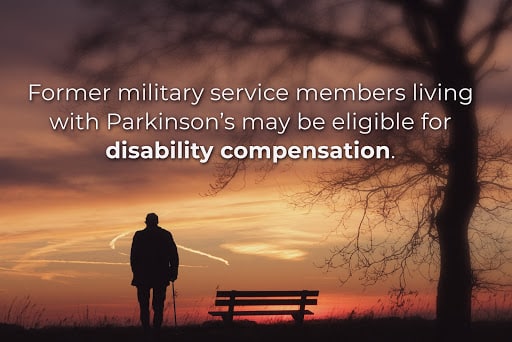Gulf War Syndrome, or Gulf War Illness, is the name for the symptoms that certain Persian Gulf War Veterans experience.
Since the end of the 1991 Gulf War, there have been numerous reports from veterans of unexplained, multi-symptom illnesses. These illnesses include chronic fatigue syndrome, fibromyalgia, functional gastrointestinal disorders, and other undiagnosed illnesses. The symptoms of these illnesses may be similar to autoimmune diseases but have no clear causes.
While the cause of Gulf War Syndrome is not yet known, there are some theories that connect the conditions with the anthrax vaccine. The military, as well as ongoing research, has not substantiated these claims.
We will be breaking down the current research on the anthrax vaccine and its side effects.
Vaccines & Gulf War Syndrome
In addition to being exposed to various environmental hazards and toxic chemicals, Gulf War veterans were also given a large number of vaccines. According to the VA, veterans received as many as 10 vaccines in preparation for service.
Service members received the standard series of vaccines that all U.S. citizens traveling to the Gulf needed to have. These vaccines included:
- Yellow fever
- Typhoid
- Cholera
- Hepatitis B
- Meningitis
- Whooping cough
- Polio
- Tetanus
In addition to this series, about 150,000 troops received the anthrax vaccine and about 8,000 received the botulinum toxoid vaccine.
The Department of Veterans Affairs does not officially recognize the link between Gulf War Syndrome and vaccinations. However, many different research organizations continue to evaluate possible causes of Gulf War veteran’s health problems. As part of the effort to learn more about how Gulf War service affected veterans, the VA established the Gulf War Registry.
Did the Anthrax Vaccine Make Service Members Ill?
In the late 90’s, the United States military created an anthrax vaccine immunization program (AVIP) to protect service members from potential bioterror events upon deployment. However, the Food and Drug Administration had not yet tested the vaccine for use against inhalation anthrax.
In the coming years, there have been reports of serious side effects that may have resulted from this vaccine. While the connection can be difficult to prove, military veterans may be eligible for compensation based on these long term side effects.
What Is Anthrax?
Anthrax is a bacterial disease that has been around for centuries. According to the Centers for Disease Control and Prevention, this disease is caused by the bacteria bacillus anthracis. Anthrax can enter the body through the lungs, skin, or gastrointestinal system. These types of anthrax are called inhalation, cutaneous, and gastrointestinal anthrax respectively.
This disease may date as far back as ancient Egypt. In fact, it was thought to have caused the fifth plague during the time of Moses, killing horses, cattle, sheep, and oxen. Scholars even think that Homer described anthrax in his telling of the Iliad around 700 BC and that the deadly pathogen may have contributed to the fall of Rome.

Who Has a Risk of Exposure?
Anthrax most often spreads through contact with animals, animal products, or anthrax spores, so individuals like livestock workers, veterinarians, laboratory workers, and certain travelers are some of the only groups with a high risk of exposure. However, military personnel can also have an increased risk of exposure due to the risk of bioterror, according to the CDC. This most often applies to inhalation anthrax specifically.
Anthrax Vaccinations & The Military
Iraq researched Anthrax disease as a biological weapon in the 80s, and it was assumed that Saddam Hussein had created bombs and missiles loaded with the Anthrax bacteria by 1991 in preparation for war. In preparation, the United States Department of Defense utilized an anthrax vaccine to protect military forces deploying to the middle east. However, the FDA had not yet tested this particular vaccine for use against inhaled anthrax.
Vaccinations were required by all forces, not just US troops. BioPort, now Emergent Biosolutions, was the exclusive manufacturer of BioThrax at the time, and this vaccine had proven to be effective against the bacterium that’s acquired through the skin, but not when the bacterium is inhaled.
BioThrax didn’t get FDA approval for inhaled anthrax until 2015. It was the first vaccine approved under the FDA’s animal rule. So, at the time of the AVIP, the military was administering BioThrax as an “off-label” vaccine.
Was The Anthrax Vaccine Safe?
Despite concerns about its safety, the Department of Defense mandated that all military personnel be vaccinated with BioThrax prior to deployment to Iraq or Afghanistan. They then expanded the anthrax vaccine immunization program to all US Military forces and DOD civilian contractors.
With the expansion, BioPort Corp requested FDA approval to include aerosol exposure approval, switching to intramuscular injections, and reducing the number of doses. In 1997, the DOD required that 2.5 million military personnel receive the Anthrax vaccine. By 1998, it was mandated for all civilian DOD personnel as well.
After the 9/11 attacks on the World Trade Center and the Pentagon, two US Senator’s offices and news agencies along the east coast of the United States were sent letters that contained Anthrax spores. The powder form allowed the spores to float in the air. This means that unsuspecting bystanders and the intended targets could potentially breathe in the bacteria. In all, five people died and 17 people were infected as a result of the attacks.

Mandatory Anthrax Vaccine
Due to questions about the contents and safety of the vaccine; in October 2004, US District Court Judge Emmet G. Sullivan ruled that it was illegal for the federal government to mandate anthrax vaccinations.
Judge Sullivan banned the Pentagon from forcing military personnel serving in Iraq, Afghanistan, South Korea, and part of Asia and Africa to get the anthrax shots without their prior consent. The military could not require the vaccine until the FDA approved it for the specific use of inhaled anthrax.
Anthrax Vaccine And Squalene
In September 2000, a lab test found trace amounts of Squalene in certain BioThrax vaccines. The concentration was less than the typical amount of squalene found in human blood. These findings suggested that certain batches of the anthrax vaccine may have been contaminated with squalene, likely due to fingerprint oil remaining on the test tube.
In a study of Gulf War veterans suffering from Gulf War Syndrome, conducted by Tulane University, 95% of the veterans had anti-squalene antibodies in their blood. The researchers updated their findings two years later, again testing the blood of veterans who experienced Gulf War Syndrome symptoms.
While an initial study found anti-squalene antibodies (ASA) in six out of six of the service members who received the vaccine, the larger study that followed found ASA in about a third of vaccine recipients. Analysis supported the findings that squalene was present in specific lots of the anthrax vaccine, likely due to a lab error.
It’s also important to note that squalene is a naturally-occuring substance in the human body. A purified form of squalene is also present in certain influenza vaccinations, as the substance boosts the body’s immune response.
At this time, research does not support that the military intentionally put squalene in the anthrax vaccine. Nor does it suggest that BioThrax caused Gulf War Syndrome.
Anthrax Vaccine Side Effects & Adverse Reactions
Most vaccines carry some risk of adverse effects like allergic reactions and pain at the injection site. However, there may be evidence of more severe and widespread reactions among service members who were vaccinated under AVIP.
In 2002, the General Accounting Office (GAO) conducted a study on adverse reactions of those who received anthrax vaccines in response to a large number of pilots leaving ranks. The study also measured opinions on the vaccine itself.
The survey found that between 1998 and 2000, about 16% of aircrew members and pilots either transferred to another unit, left the military, or moved to inactive status.
About two-thirds of these service members cited the anthrax vaccine as a major factor in their decision. The results show that 27% ranked it as the most important factor. Other factors included other immunizations, unit morale, individual morale, workload, other employment, retirement, and family.
As for physical reactions to the vaccine, the study found that the occurrence of reactions in the survey group was higher than estimated. Of those who received the vaccine, 84% experienced some sort of side effect. This is compared to an estimated rate of 34%.
About one-fifth of survey respondents had reactions that lasted longer than seven days. The most common reported reactions that lasted longer than seven days were limited motion/pain in the arm, extreme fatigue, joint pain, and memory loss.
There are a number of side effects that veterans reported after receiving the anthrax vaccine, ranging from mild to severe. These include:
- Mild/Moderate: reactions on the arm where the vaccine was given such as tenderness, redness, itching, development of a lump or bruise, muscle aches; headaches; joint pain; fever; and fatigue.
- Severe: signs that an adverse reaction to the anthrax vaccine is severe include difficulty breathing, weakness, hoarseness, wheezing, a fast heartbeat, hives, dizziness, paleness, or swelling of the lips and throat. Serious reactions involving the skin and nervous system have been reported, but a direct link to the anthrax vaccine has not been conclusively proven.
There are currently no peer-reviewed studies supporting long-lasting effects of the Anthrax vaccine.
Can You Make a Claim for Anthrax Vaccine Side Effects?
While the VA does acknowledge certain presumptive conditions for Gulf War veterans, obtaining benefits isn’t always easy.
When claiming that a condition is service-related due to the anthrax vaccine, or any in-service vaccine, one must be able to rule out all other possibilities.
One former military service member was able to get genetic testing to show her brain disorder was not genetic and therefore more likely than not due to the anthrax vaccine.
However, it can be difficult and expensive to obtain proof. Being able to show reactivity within a short period of time after vaccination and having a strong timeline is helpful. Legal and health care experts can assist in working your claim if you feel that a vaccine has caused a disabling condition.
Have Questions About Your Claim?
Recipients of anthrax vaccines, as well as those suffering from Gulf War Syndrome, may be eligible for VA disability compensation. If you have questions about your VA disability claim, contact the team at Hill & Ponton today. You can learn more about resources for Gulf War veterans on the VA’s website (VA.gov).




